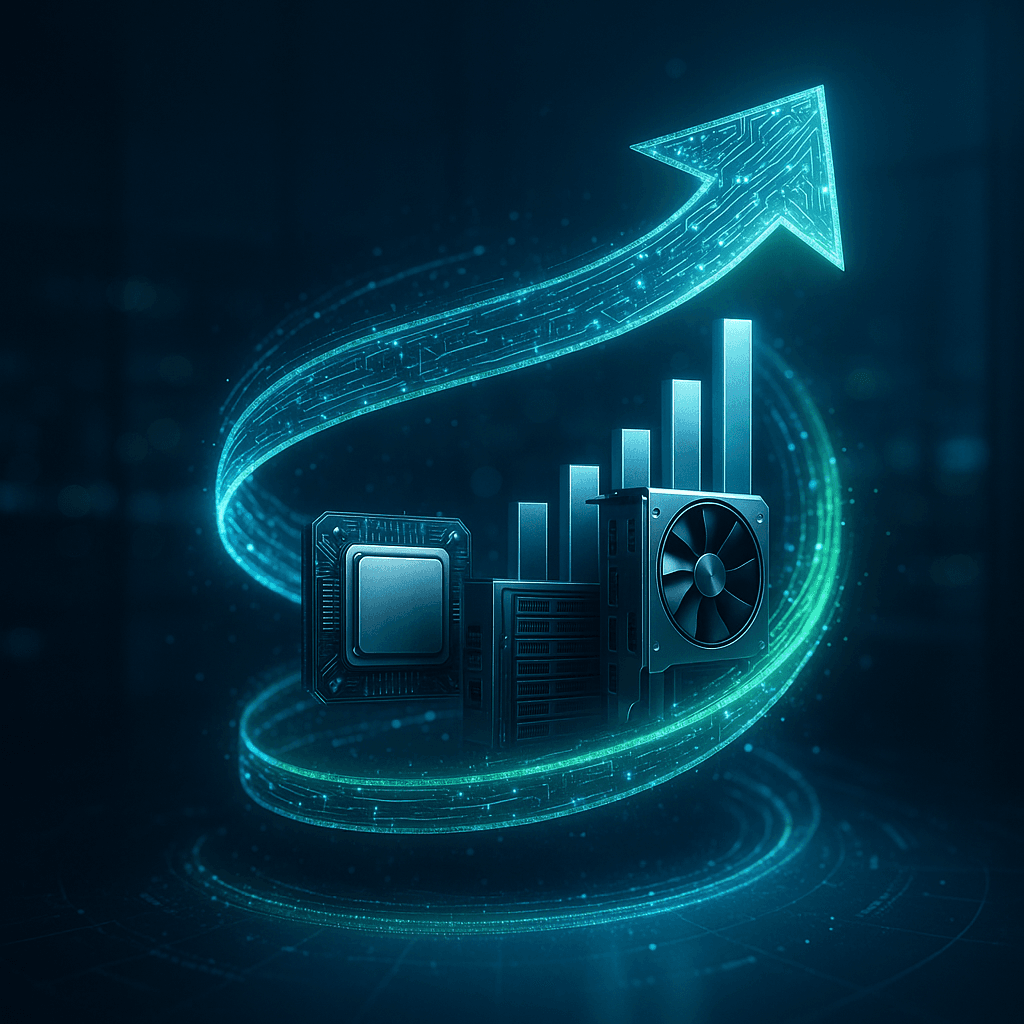Nvidia CEO Jensen Huang just delivered the most bullish take on AI investment we've heard yet. Speaking at the APEC CEO Summit in South Korea, Huang declared that artificial intelligence has reached a "virtuous cycle" - better AI drives more usage, which generates more profits, which funds even better AI. This self-reinforcing loop, he says, explains why global capital expenditure is accelerating at breakneck speed.
Nvidia just hit $5 trillion in market value, and CEO Jensen Huang thinks we're only getting started. At the APEC CEO Summit in South Korea on Friday, Huang painted an almost inevitable picture of AI's growth trajectory - one where success breeds more success in an endless loop.
"We have now achieved what is called the virtuous cycle," Huang told the audience, trading his signature leather jacket for a business suit. "The AIs get better. More people use it. More people use it, it makes more profit, creates more factories, which allows us to create even better AIs." It's a feedback loop that's driving what he calls the fastest capital expenditure growth the world has ever seen.
The numbers back up his confidence. Meta, Amazon, Alphabet, and Microsoft are collectively spending over $300 billion this year on AI technologies and datacenter buildouts, according to their latest earnings reports. That spending spree shows no signs of slowing - if anything, it's accelerating into 2026.
Dan Ives from Wedbush Securities, who's been tracking this AI gold rush closely, described Nvidia as "the foundation of the AI Revolution" in comments to CNBC after Huang's remarks. His take on the virtuous cycle? "The more demand, the more building of AI building blocks. And demand creates more demand and capex."
But Huang's vision goes way beyond just selling more chips. He's talking about a fundamental rewiring of how computing works. "Every single layer of the computing stack is being fundamentally changed," he explained on stage. We're not just upgrading software - we're rebuilding the entire foundation of how computers process information.
The shift is massive. Traditional software runs on CPUs, but AI runs on GPUs - Nvidia's specialty. "The computer industry has been largely the same for 60 years," Huang noted, "and now, with AI and accelerated computing, every single layer of the computing stack is being changed." He estimates that trillions of dollars worth of existing computers will need to transition to this new platform.












